‘A godsend.’ JoCo widow didn’t know what a death doula was — until she needed one
Ashley Boydston spent hours sitting next to John Binder’s bed at a Johnson County nursing home in the months before he died.
She would fire up Alexa, the virtual assistant, and play the big band songs he loved.
On Sundays, she read him the Scripture readings from that day’s Mass and set up regular Zoom visits with his adult children, most of whom live far, far from Kansas City.
Sometimes she would reposition his long, 88-year-old body, growing thinner by the day, making him more comfortable and checking for bedsores. His kidneys, destroyed by diabetes, were failing him. He had lost his sight, too. Eventually persistent pain made him moan in his sleep.
When Boydston was with him, Binder’s wife of 65 years and primary caregiver, Jeannine Binder, rested at home knowing, Boydston said, “that I was there to feed him his meal, just be a pair of eyes there when she wasn’t.”
Before Boydston came along, as John’s health declined, Jeannine’s did, too. The neighbors saw it. The registered nurse who lived below her in her senior condo complex in Shawnee started checking on her. The kids could see their mom’s suffering, even from a distance.
They sent out a figurative SOS. And Boydston answered the call.
The 45-year-old mother of two is an end-of-life doula, trained to provide non-medical emotional, practical and spiritual support to people approaching the end of life, and to their families.
Like birthing doulas, they serve as an extra set of eyes and ears, guides, troubleshooters, family mediators, translators of medical jargon and advocates at a time of stress and duress.
“Sometimes it’s just nice to have that one person who’s not in a suit and tie or a white coat,” said Boydston, whose service is called The Next Effort KC.
The Binder family had never heard of end-of-life doulas, also known as death doulas. Neither had the funeral home director in Lenexa or the folks at the Catholic cemetery in Johnson County when Boydston showed up on the family’s behalf.
“I just think people are nervous about the unknown and aren’t quite sure what we’re doing,” said Boydston, who recently became the volunteer coordinator for Kansas City Hospice & Palliative Care.
“One of my biggest goals is to maximize the time families can have with their loved ones, so if there are things I can do so you can stay with your loved ones, I’ll do it.”
Though more numerous in other parts of the country, death doulas are new and few in the Kansas City area — 15 to 20 by one estimate. Locally they have roots in a small group, Banner Endings Collective, which meets regularly over casual dinners and is available to anyone interested in knowing more about the work.
In October, doulas on both sides of the state line joined forces to create KC End of Life, a nonprofit that will market their services, help doulas find one another and, organizers hope, financially support them through donations and grants.
Boydston arrived like the cavalry as the Binders tried to decide whether to call hospice. John, a retired mechanical engineer, refused to consider it, straining family conversations. He had an easier time talking to Boydston.
“His pain got really bad because when I would sit there and he was sleeping he was moaning and groaning in pain. And when I’d ask him are you ready for hospice, they’ll make you comfortable, you won’t be in pain, he wouldn’t answer,” Jeannine said. “He just wouldn’t answer.”
“He’d clam up,” said Boydston.
“He liked Ashley,” said Jeannine. “He would talk to Ashley. He wasn’t talking to me anymore. He wasn’t talking to the kids that much.”
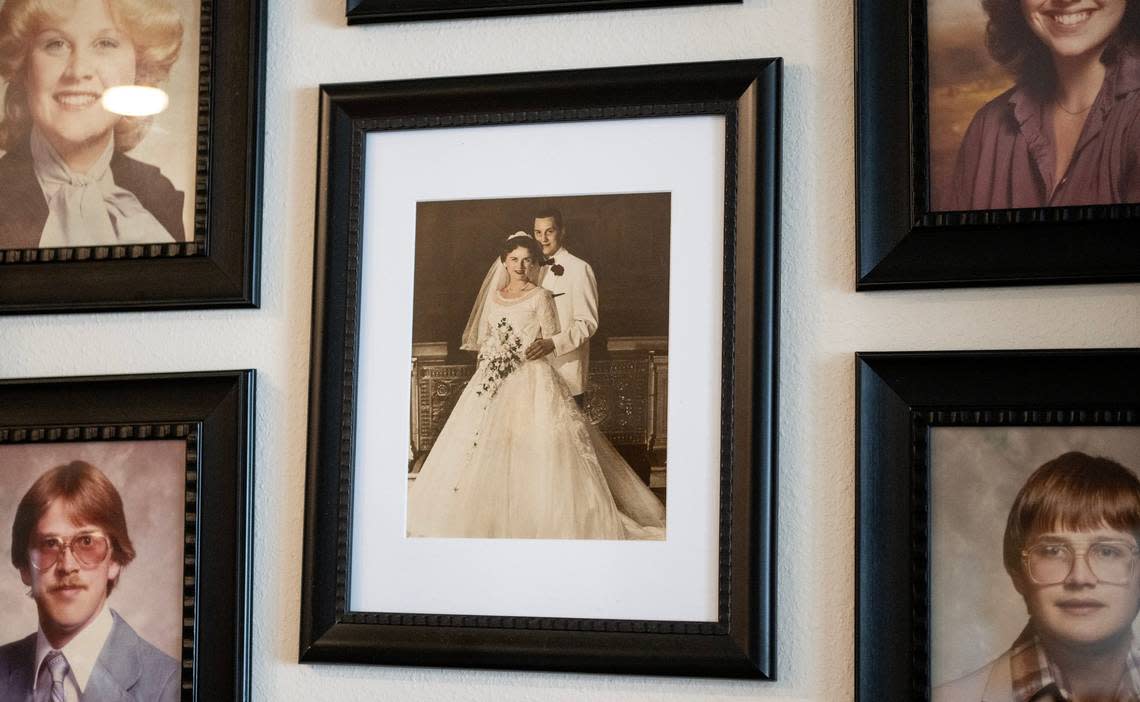
Not competing with hospice
Local doulas have a lot of work ahead. For one thing, they would like to offer their services in aging rural areas, but death doulas are even more of a foreign concept there than in the cities.
Just describing what they do sometimes challenges them because they tailor their services to each client and family.
Like doulas who help families prepare for babies at the beginning of life, death doulas help clients prepare for what happens at the end, Boydston said.
They plan. Maybe it’s gathering family members together to make sure everyone says their peace, no regrets. Maybe it’s helping the dying person give away meaningful treasures so they can see what that gift means to a loved one, said Boydston.
Death doulas emphasize that unlike hospice and palliative care teams with doctors and nurses, they do not provide medical care.
But, they have walked dogs, helped families with advance directives and funeral arrangements and accompanied pediatric cancer patients to chemotherapy sessions.
Boydston even cleaned out the litter box for Muffin, Jeannine Binder’s naughty cat who once attacked a home health aide who then called the police.
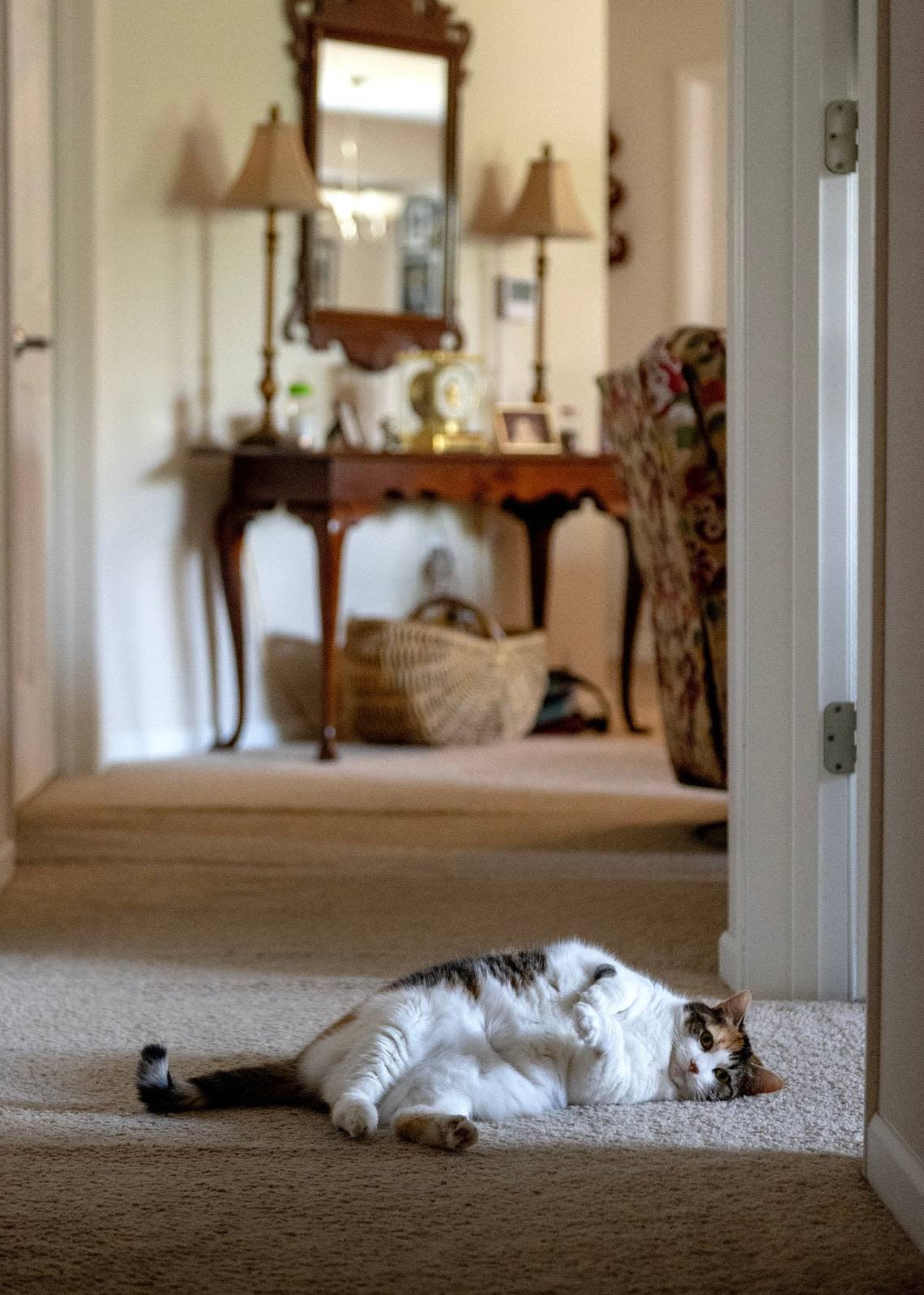
One of Boydston’s current clients, a Kansas City woman diagnosed with terminal cancer, asked her to cook meals for her children to keep their routine close to normal while she goes through chemotherapy.
At the heart of what they do is the simple yet profound and intimate act of holding someone’s hand as they make the last transition of their life. Doulas hold a lot of hands.
Sometimes, family members are afraid to touch their dying loved ones.
There’s no competition between the doulas and hospices or funeral homes, said Allison Unruh, an end-of-life doula in Shawnee and a founder of Banner Endings doula service.
“We just do our own thing. I think that it’s complementary,” she said.
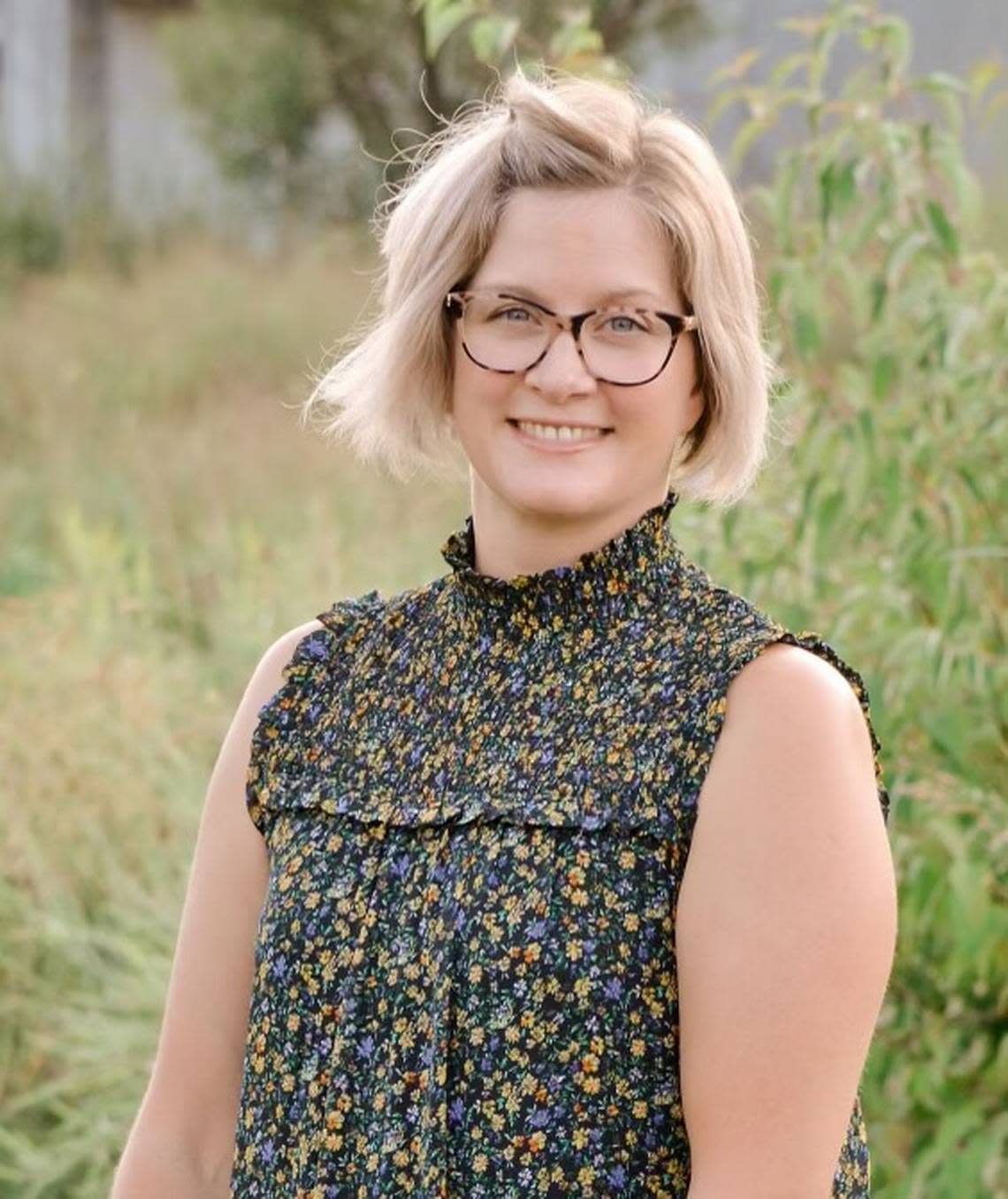
The hospice industry has begun collaborating with doulas. Some hospices across the country have created their own in-house doula programs.
The National Hospice and Palliative Care Organization established an End-of-Life Doula Advisory Council to promote a better understanding of the role of doulas among its members and the public. The group is the largest membership organization for end-of-life care providers.
Doulas “complement” hospice teams by adding guidance, knowledge and practical support, and reinforcing care plans, Marina McGough, national director of volunteer services for the group, told The Star.
“Overall hospice medical professionals are very receptive to the end-of-life doula, especially when they are knowledgeable on what a doula does and what a doula does not do,” said McGough.
“A medical professional with no education on the role and no previous interaction would naturally be wary, hence, the purpose of the … council, to educate the professional medical community about this emerging discipline.”
Doula services are not covered by insurance, but practitioners are campaigning to change that.
Medicare and insurance generally cover hospice, with limits. But patients pay out of pocket for death doula services. Many doulas work on a sliding scale — roughly $40 to $100 an hour depending on the services — and some provide pro bono services.
Organizers of the new KC End of Life nonprofit hope to attract grant funding and corporate sponsorships that will make services obtained through the group free to people who need it most, Unruh said.
“That’s another drawback. We’re not paid by a higher entity, we’re private pay, which means we have to contract with the family,” said Unruh. “We have to come up with a way to mitigate that.
“One of our main goals is to make sure that all have access, not just those who can afford it. Our fees are not high, but that doesn’t equal people can afford it.
“And also, personally, I don’t like the idea of drawing up a contract and having the family sign it as their person is getting ready to die.”
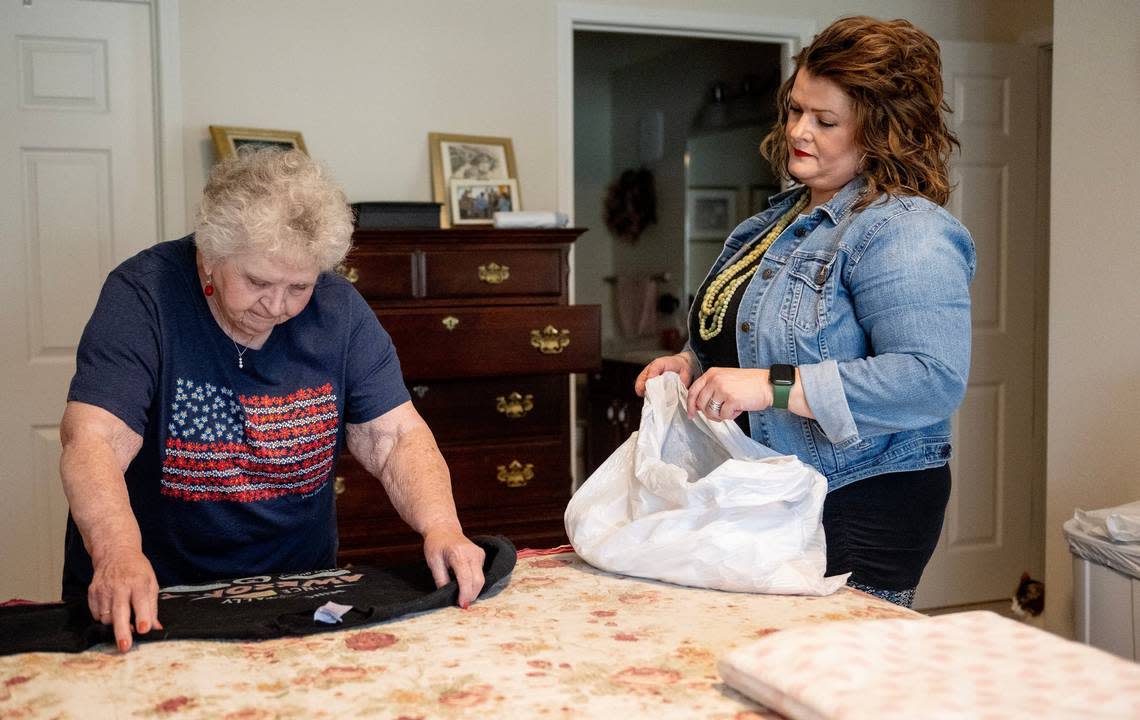
‘I am not afraid of death’
Across the country, end-of-life doulas are mostly women, “however we do have men doulas, too,” said Joan Bretthauer with NEDA, the National End-of-Life Doula Alliance, a nonprofit, professional membership organization for doulas, doula trainers, advocates and friends of the work.
“The end-of-life doula profession is not going away,” Bretthauer said. “More and more people are becoming doulas for many different reasons.”
Bretthauer, based in St. Louis, said people from all walks of life are becoming death doulas — doctors, nurses, social workers, lawyers, accountants, first responders, chaplains, licensed massage therapists and hospice executives.
She has a master’s degree in corporate and industrial communications and has served on the board of Gateway End-of-Life Coalition in St. Louis for 12 years.
“I did not come to being a death doula because I experienced a bad death,” Bretthauer said. “I came to being an end-of-life doula because I am not afraid of death.”
When people ask Bretthauer what it takes to be a doula, “I tell them doulas have to be nonjudgmental, empathetic, you have to have active listening skills and hold space for your clients,” meaning you show up, all-in, for clients.
Boydston got into the work in the fall of 2020 after her husband’s grandmother, suffering from advanced dementia, fell in her home.
It wasn’t safe for her to live on her own anymore, but family members didn’t want to place her in a care facility, Boydston said. Thus began more than two years of group caregiving by the family.
Boydston knew there would come a point when they wouldn’t be able to help her on their own, so she researched options, even considering becoming a home health aide. Then she somehow “stumbled” upon the work of death doulas.
“I looked up the training and wow, yes, this was it,” she said. “There’s so much people need to know, and this can help fill in the gaps of hospice to help the caregivers.
“The base meaning of the word doula is servant, and that’s what I was interested in.”
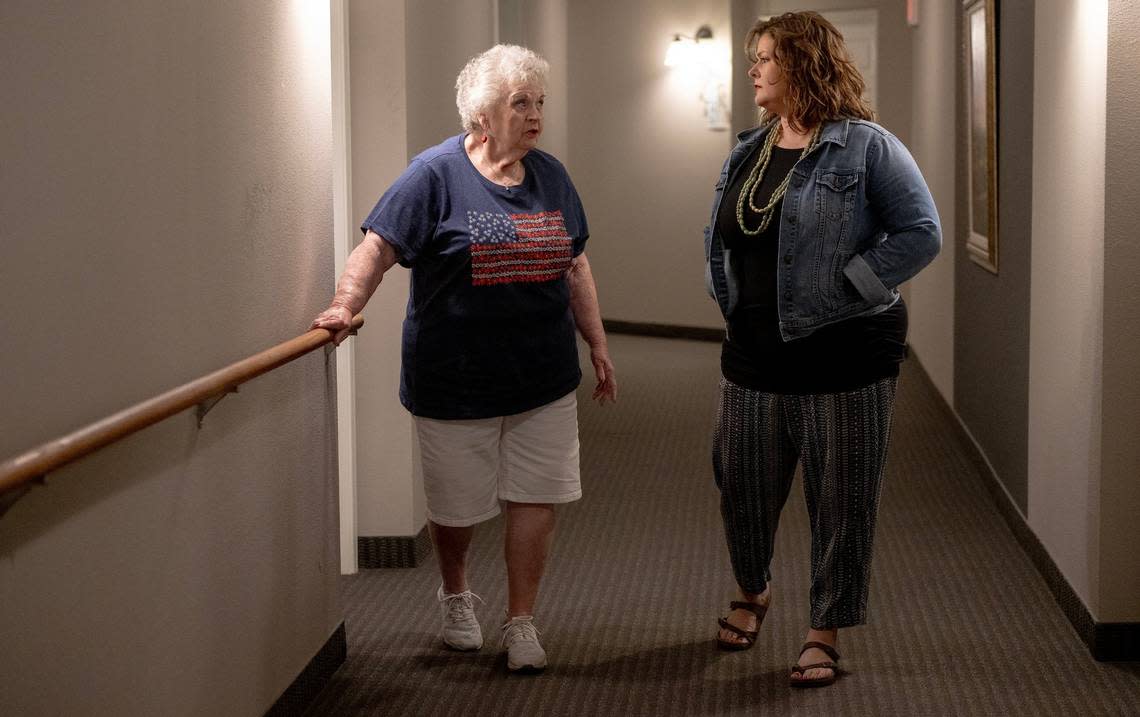
Three years later Boydston doesn’t have enough clients yet to do doula work full time, so she’s focused on educating people in the Kansas City area.
She’s given “death cafe” presentations at public libraries and churches and talked to college classes. Last month via Zoom she spoke to officials from Kansas agencies that work with seniors.
More than 10,000 people turn 65 every day in the United States, according to the U.S. Department of Health and Human Services, whose website cautions that “healthy lifestyles, planning for retirement, and knowing your options for health care and long-term care are more important than ever before.”
“I had never heard of end-of-life doulas. Birthing doulas … but this one is new,” one participant said at the outset of Boydston’s presentation.
She told the group that though she is an end-of-life doula, “the longer I’m in this field I tell people I’m a doula who knows a lot about death, so life and death doula is more appropriate.
“I don’t only work with people who are dying, I work with people who are very much alive.”
Boydston and Unruh were trained by New Jersey-based INELDA, the International End of Life Doula Association, one of several training programs in the country.
Anyone can call themselves a death doula. In Missouri they are not certified by any credentialing body, said Lisa Cox, spokeswoman for the Missouri Department of Health and Senior Services
“There are certainly training programs that may allow certificates to be received, but a credentialing body is not certifying doulas in Missouri,” she said.
The Kansas Department of Health and Environment does not certify end-of-life doulas, either, said spokesman Matt Lara.
To choose one, Unruh recommended using the directories of the local collaboratives and national groups such as NEDA and INELDA.
Study the doula’s biography, Unruh said. Does their personality mesh with yours? Are they close by?
The first meeting with a doula “is generally a consult when you are meeting and seeing what’s what,” said Unruh. “You will get a good feel if it’s the right fit fairly quickly.”
In their training, Boydston and Unruh learned the signs of death, how to use guided imagery and the intricacies of regret and forgiveness, “kind of the spiritual side of who people are is often neglected when we just see dying as a medical event,” said Unruh.
Because of that training, Boydston could explain to Jeannine Binder and her children what to expect in John’s last days, that his hearing would be the last sense to go.
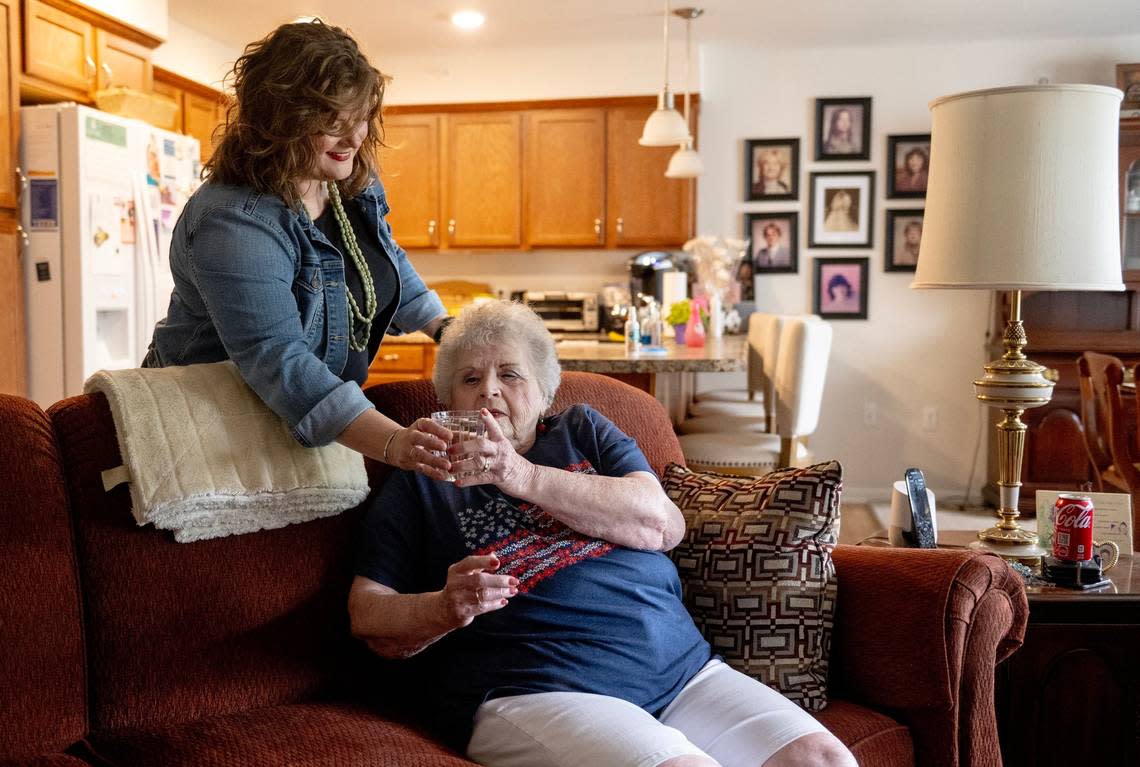
A doula is there at the end, and after
Jeannine Binder was, to be blunt, a mess the first time Boydston met her last year.
John’s pain made him cranky. He cussed out staff. He made one female staff member cry.
The stress of visiting him every day — her choice to do so — forced Jeannine to say an extra rosary, a set of meditative prayers, before she went.
“When the stress got so bad, we didn’t know who to reach out to,” said her daughter, Trina Wafle, who lives in West Virginia.
Searching for help, Wafle called her parents’ Catholic church in Lenexa, Holy Trinity, and a deacon there told her “you need a doula, you need a doula.”
His sister-in-law happens to be a death doula in New Mexico. Wafle talked to her, did her own due diligence about this new field and then, through the membership group NEDA, found Boydston.
She called Boydston’s work a “godsend.”
“I want everybody to know about this,” said Wafle.
Her dad’s illness and death would have been more stressful for everyone without Boydston, she said.
“I was already thinking about taking a leave of absence from my job, from my husband … and my family. And I was feeling guilty about it. I’m sure we all had those thoughts,” she said of her siblings.
“So the fact that Ashley was here, and frankly, was better positioned emotionally to deal with this work … my mom and I would have been at each other’s throats.”
The siblings pitched in to pay Boydston’s fee and soon, she was visiting John twice a week instead of just once.
Wafle liked how Boydston took a “holistic view” to the end of life and that unlike other “medical help,” wasn’t driven by a clock. Visits lasted as long as John needed them to be.
Boydston did things “like reviewing the Medicaid situation with Mom and Dad and intervening with the nursing home and KanCare … and in doing so she found savings for Mom,” said Wafle.
“She also recognized other things, how the caregivers, their health starts to be affected. Mom is a breast cancer survivor and her lymphodema started acting up. Ashley made sure she went to see a doctor.
“Mom was more worried about Dad and, two, she was worried about the money. Ashley understood that and was helpful. Even simple things about getting on auto-pay for some bills.
“She met with Mom, too, to offload any of her feelings of guilt and sorrow.”
The Binder children will never know what was said between their mother and Boydston, through the tears Jeannine shed while sitting on the sofa of her condo with the doula, Muffin the cat lurking nearby.
John died in his sleep in the first hours of April 2, Palm Sunday. His family had spent Saturday with him. Boydston had told them how long patients typically live after being taken off dialysis. They still thought they would have more time.
John’s obituary included this line: “The family wishes to thank End-of-Life Doula, Ashley Boydston, of The Next Effort for her knowledgeable, compassionate, and invaluable assistance for John and Jeannine.”
“Thank God Ashley was there,” said Jeannine.
Boydston thought John’s death might end her time with the family, but they told her she wasn’t going anywhere yet.
Six months later she still visits Jeannine at her condo every week.
And Muffin doesn’t mind.
